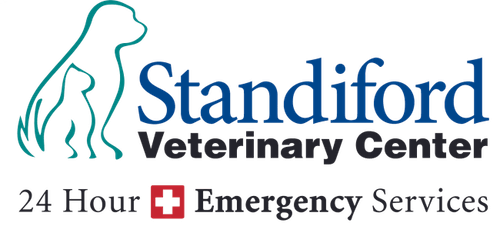What is BOAS?
Brachycephalic, or short-faced, breeds of animals, such as Pugs, English and French Bulldogs, Boston Terriers, Persians, etc., can have certain anatomic abnormalities that can cause respiratory difficulties. Collectively, these abnormalities are known as Brachycephalic Obstructive Airway Syndrome (BOAS).
What are the symptoms?
Most animals with BOAS present for respiratory signs, such as increased respiratory noise and effort. In severe cases, the animal may have had an episode of respiratory distress or may have even lost consciousness. Some individuals also present for some degree of coughing and gagging. Increased exercise or hot conditions often worsen clinical signs.
What diagnostic tests will my pet need?
Most patients have blood tests to check for any other major health conditions that may increase the risks of an anesthetic procedure. Chest X-rays are obtained to determine if the animal has a hypoplastic trachea, as well as to check for any abnormalities in the lungs. When anesthetized, a thorough upper airway examination is performed in order to assess the nature and severity of the animal’s anatomical abnormalities. Once this is determined, surgical correction is performed if deemed necessary.
What are the surgical treatments?
The surgical goal for a patient with BOAS is to remove any tissue that is causing upper airway obstruction. Brachycephalic dogs commonly present to veterinary hospitals for a variety of reasons. Airway compromise is a common occurrence with even simple procedures making an argument for early intervention for brachycephalic airway surgery. Below is an example of what we see in our emergency rooms and ICU.
How is BOAS diagnosed?
A diagnosis of BOAS is suggested by the signs a cat or dog shows. However, a definitive diagnosis of BOAS is made during an upper airway examination under general anesthesia. This allows the anatomical malformations to be observed directly.
How much does surgery cost?
Costs include:
- Anesthetized upper airway assessment
- Day care monitoring with a dedicated veterinarian and nurse
- Post-operative visit 3 days following procedure
- All related surgery fees
- Take-home medications following surgery
Please reach out to us at (209) 577-3481 to receive an estimate on this surgery. You can learn more about Brachycephalic Obstructive Airway Syndrome by clicking here.
